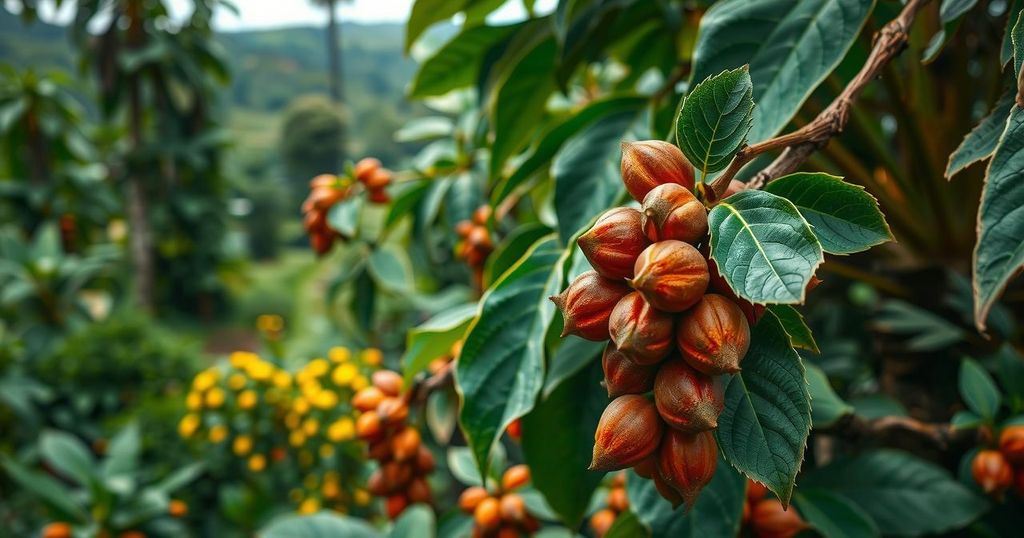Agroforestry systems integrating shade trees into cocoa farming are essential for sustaining cocoa production in West Africa amidst climate change impacts. Research from the University of Göttingen reveals that understanding shade trees’ seasonal leaf cycles enhances productivity and resilience. The study identifies seven functional groups of shade trees that influence cocoa yield and environmental stability, offering practical guidelines for farmers to optimize shade tree selection for improved cocoa agroforestry systems.
Agroforestry systems, which incorporate trees and shrubs into cocoa farming, are crucial for sustainable cocoa production in West Africa, responsible for 70% of global output. With climate change leading to increasing drought conditions, it is imperative to adapt farming practices. Recent research from the University of Göttingen highlights the significance of leaf phenology—the seasonal changes in the leaf cycles of shade trees—in enhancing climate resilience for cocoa agroforestry. A two-year study in Ghana’s northern cocoa belt analyzed the impact of various shade tree species on cocoa productivity and environmental stability, emphasizing the need for strategic selection based on seasonal leaf cycles to maintain soil moisture during droughts.
The research categorized shade trees into seven functional groups, each associated with different effects on cocoa yields and environmental conditions. Notably, shade trees that shed leaves entirely during the dry season are particularly beneficial for preserving soil moisture, a critical factor for cocoa production. Alternatively, trees with shorter leaf-shedding periods may increase soil water demands, which could negatively affect cocoa yield in regions experiencing prolonged dry seasons. Furthermore, while evergreen trees are advantageous in moderate climates, they may increase the risks of fungal diseases in wetter areas.
Dr. Munir Hoffmann from Göttingen University emphasized that grouping shade trees according to their leaf phenology provides practical guidelines for enhanced climate-resilient cocoa production. Additionally, Dr. Issaka Abdulai, the study’s lead author, asserted the importance of leaf phenology in selecting shade trees, underscoring its role in improving cocoa resilience to climate variations. Professor Reimund Rötter reaffirmed this perspective, suggesting that appropriate shade tree selection could significantly support cocoa productivity and environmental stability.
Cocoa farming is a vital source of income and sustenance for millions in West Africa. However, climate change and its impacts, particularly drought, present significant challenges to sustaining cocoa production. Researchers have increasingly turned to agroforestry as a sustainable farming technique. By incorporating shade trees into cocoa farms, farmers can mitigate the adverse effects of climate change and bolster production. Understanding the phenological behavior of these trees is critical to optimizing their benefits in cocoa cultivation.
In conclusion, the findings of the research highlight the importance of selecting shade trees based on their leaf phenology to enhance cocoa farming resilience against climate change. These insights provide a practical framework for farmers in West Africa to improve cocoa productivity and maintain environmental stability amid increasing climatic challenges. The study demonstrates that strategic agroforestry practices can play a crucial role in sustaining one of the world’s most essential agricultural commodities.
Original Source: www.eurasiareview.com







